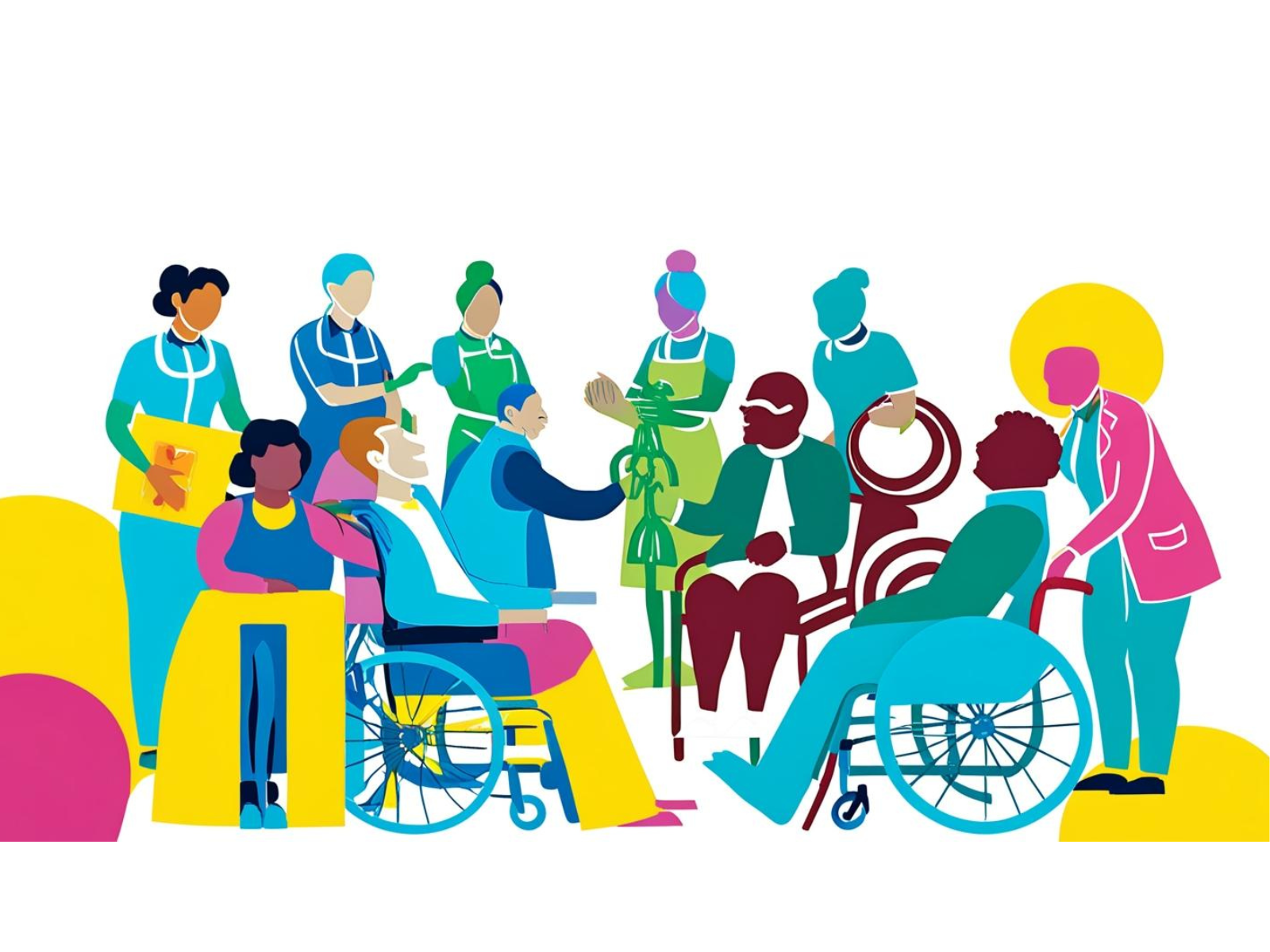30 years of social care: Looking back and ahead
This month, as we mark Disability History Month, we also celebrate Ategi’s 30th anniversary—a milestone that invites reflection on three decades of change, progress, and learning in social care. Ategi began with a clear mission: to provide care that prioritises individuals, respects their choices, and celebrates their strengths. At the heart of this mission lies person-centred care, a model that has grown from a hopeful idea into a defining standard of excellent support.
From Systems to People: The Rise of Person-Centred Care & Support
Thirty years ago, much of social care was still rooted in systems-focused approaches. The person ‘in need’ of care often had little say in how that care was delivered, with services sometimes designed more for operational ease than personal fulfillment. In some cases, people were placed in large institutions or made to fit into rigid routines that didn’t account for their individuality.
Ategi’s very foundations began challenging that norm, facilitating people to move from hospital to home, adopting person centred care and support. Instead of asking people to fit into services, it asks services to adapt to people. It’s an approach that sees beyond the disability or challenge, and focuses on the whole person—their likes, dislikes, goals, and potential. The transformation from ‘caring’ to ‘supporting’ began; equipping people with the right support to learn new skills that enables them to do more for themselves and be less reliant on care.
Ategi has been part of this transformation from the beginning and we’ve witnessed the profound difference it can make—not just in outcomes but in quality of life.
Shared Lives: A Living Example of Person-Centred Care & Support
Shared Lives is a cornerstone of Ategi’s work and a shining example of how a person-centred approach works in practice. In this model, adults who need support live with approved carers who share their homes and their lives. Shared Lives places relationships at the forefront. It’s about living together, sharing experiences, and building trust, all within a family environment.
One Shared Lives participant, who moved in with a Shared Lives carer after years of feeling isolated, described the experience as “life-changing.”
Shared Lives challenges the idea that care must be formal and detached. Instead, it reminds us that the best support often comes from genuine relationships. It’s a model that reflects what Ategi has always believed: care and support should be as unique as the person receiving it.
Why a Person-Centred Approach Matters
Person-centred care and support isn’t just a philosophy. Research shows that when people are involved in decisions about their care, they experience better outcomes, greater satisfaction, and improved mental health. For carers, too, this approach is empowering. Instead of simply following instructions, carers become collaborators, contributing their insights and creativity to support people in meaningful ways.
However, person-centred support is not just for Shared Lives, it is a model and approach that runs through Supported Living and Community Support also.
Over the years, we have seen how a person-centred approach contrasts with older, more prescriptive models. Traditional care often focuses on what someone can’t do, emphasising limitations and risks. Person-centred care and support flips this, focusing on strengths, aspirations, and possibilities. It is not about avoiding failure; it is about pursuing joy. Ever evolving, the last 18 months have seen The Ategi Approach adopt a strengths-based practice model that actively begins with identifying the resources and capabilities of people.
Looking Ahead: The Future of Social Care
As we look to the next 30 years, the principles of a person-centred approach remain as relevant as ever however, there is still work to do as social care continues to face challenges; growing waiting lists for diagnosis and/or treatment; insufficient accommodation options; an aging population; workforce shortages, and continual funding pressures. We cannot let ourselves be deterred by the challenges, we must work together to find solutions - opportunities to innovate, overcome and adapt.
The growing use of technology apps and digital tools can help people manage their own support, improve communication, and stay better connected with loved ones. This will be a growing area in the decade ahead, however, the human touch, and all that comes with it, will always be irreplaceable.
The future of social care lies in flexibility, creativity, and continued emphasis on relationships. We must keep listening, keep involving people in decision-making, and recognise that support isn’t one-size-fits-all. It is deeply personal, and it thrives when built on trust and understanding.
A Celebration and a Call to Action
As we celebrate Ategi’s 30 years, we are proud of what we have achieved together with the people we support, our carers, and our communities. The people who were helped to move out of Ely Hospital into their own supported living homes and all those we have supported to do the same since; the people supported by Shared Lives who have found new families; and countless other stories remind us why person-centred support matters.
But this isn’t just a time to look back. It is a time to see how far we have come and most importantly, it is a time to commit to the future. Disability History Month reminds us of the progress that is possible when we challenge outdated systems and prioritise inclusion. Ategi’s journey shows how far we have come, and it inspires us to keep pushing for a world where everyone receives the care they deserve—on their terms.

Person-centred care and support isn’t just a philosophy. Research shows that when people are involved in decisions about their care, they experience better outcomes, greater satisfaction, and improved mental health.









About the author
Kate Allen
Kate joined Ategi after seven years as Chief Executive at Autism at Kingswood, a charity and support provider of services to Autistic adults and young people in England.
Driving continuous improvement in the delivery of services is compulsory to Kate who says: “The service we provide directly affects the lives others, therefore every person working in social care has an enormous responsibility to do the absolute best they can to ensure people receiving our services get the highest quality of support possible.”